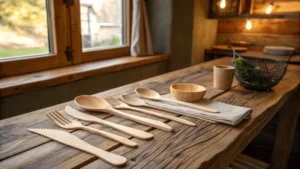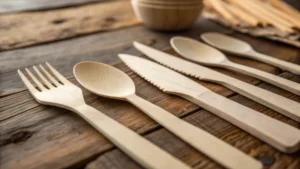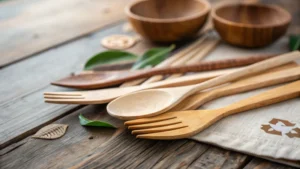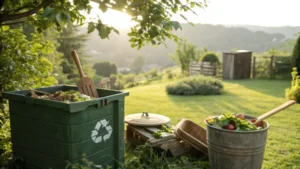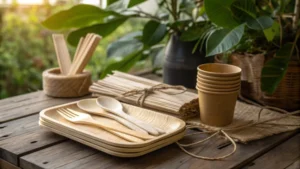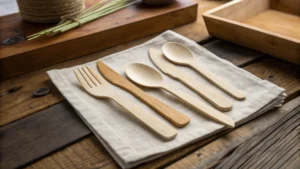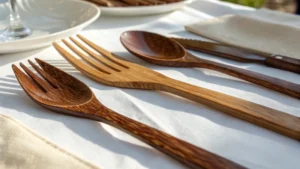
How Do Surface Treatments Like Natural Varnishes and Antimicrobial Coatings Enhance the Hygiene of Disposable Wooden Cutlery?
This article explores how natural varnishes and antimicrobial coatings improve the hygiene of disposable wooden cutlery. These treatments create protective barriers that inhibit bacterial growth, making wooden utensils safer for food service. The piece discusses the composition and application of these coatings, their benefits over synthetic options, and potential concerns regarding chemical exposure and durability. It emphasizes the importance of choosing eco-friendly products in various industries, including healthcare and hospitality, to meet modern consumer demands for sustainability without compromising safety or quality.

